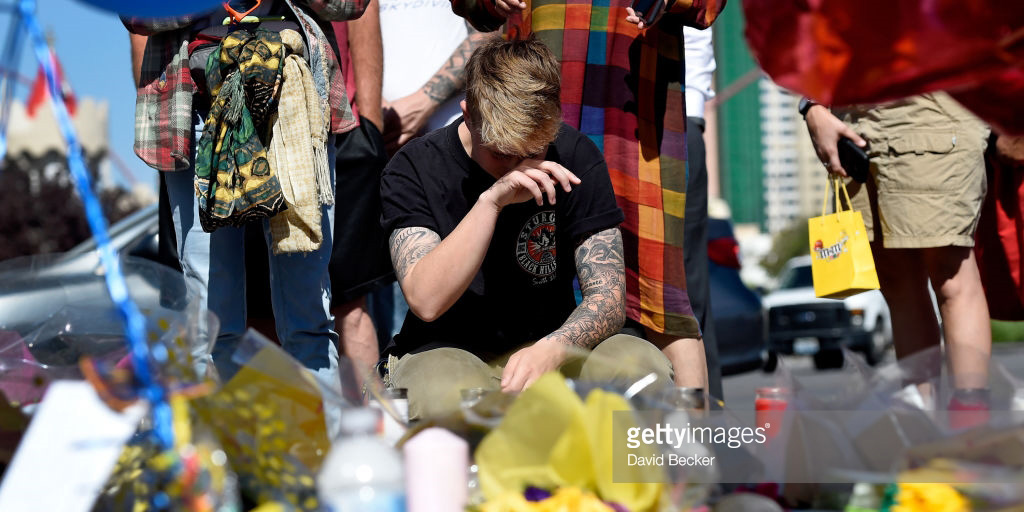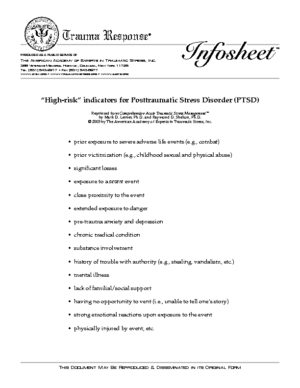
The psychological trauma of the Las Vegas tragedy will likely be great and experienced by not only those close in proximity to the crisis, but also many throughout the United States. It’s important for survivor’s families and friends to know if their loved one is suffering from PTSD.
The American Academy of Experts in Traumatic Stress, Inc. published a list of high-risk indicators for PTSD which includes “exposure to a severe event”, “extended exposure to danger”, and “physically injured by an event”—all of which were experienced by those who attended the Las Vegas concert.
Symptoms of Post-Traumatic Stress Disorder (PTSD)
While it is normal to have stress reactions such as negative emotions and changed behavior after a traumatic event, most people get better in time. A more severe problem could be at-hand if symptoms last longer than three months, cause a person great distress, or disrupts their home or work life. Post-traumatic stress disorder may cause physical or mental health concerns, and make it difficult to continue with normal daily activities.
The U.S. National Center for PTSD identifies four types of symptoms that indicate a person has post-traumatic stress disorder. If you notice the following signs in yourself or a loved one, professional help may be needed. You can contact Care Matters to speak with a licensed counselor by calling 248-691-9034 or sending an e-mail to mycare@caremattersllc.com.

